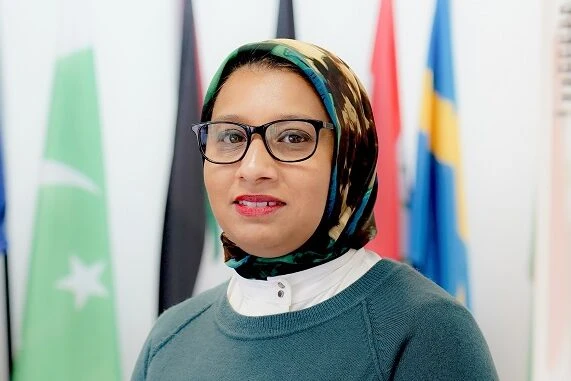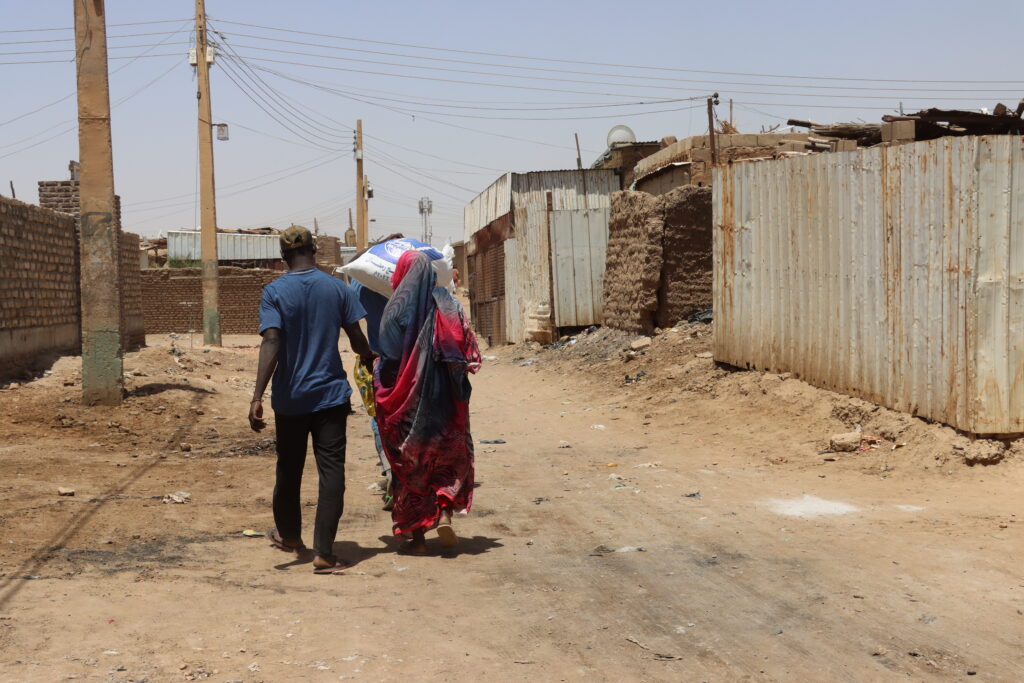Forced displacement remains a pressing global issue, with millions of people uprooted from their homes due to conflict, persecution, and natural disasters.

The challenges faced by refugees are immense, but within their journeys lie stories of strength, resilience, and hope.
The remarkable experiences of refugees shed light on the initiatives taken by individuals, communities, and organisations to support them, foster positive change, and create a sense of belonging, writes Shahin Ashraf, Islamic Relief’s head of global advocacy, arguing that the UK must ‘review and rethink’ its illegal migration bill.
Bravery and determination
The decision to leave one’s home and embark on a perilous journey into the unknown requires immense strength and courage. Refugees are forced to abandon their belongings, their communities, and often their loved ones in search of safety and hope for a better future. It is crucial that we recognise and celebrate the bravery and determination it takes to make such a choice.
Refugees demonstrate remarkable resilience as they rebuild their lives in host countries. Despite facing numerous challenges, they find ways to adapt; learning new languages, seeking employment opportunities, and contributing to their communities.
Communities and individuals around the world have launched inspiring initiatives to create a sense of belonging for refugees. These initiatives include language classes, cultural exchanges, mentorship programmes, and community centres. By embracing refugees and providing support, these acts of compassion and solidarity restore hope and dignity, helping refugees rebuild their lives and regain a sense of belonging.
Providing contributions and building new connections
Refugees are not just passive recipients of aid; they actively contribute to the economy, culture, and social fabric of their new homes.

Islamic Relief’s 2023 Ramadan programme targeted internally displaced persons and refugees in countries such as Sudan
They start businesses, work in various industries, bring diverse perspectives, and enrich the cultural tapestry of their communities. Recognising these contributions is essential for fostering greater acceptance and integration. Human connection plays a vital role in restoring hope and dignity for refugees.
Volunteers, organisations, and community members work tirelessly to provide support, guidance, and friendship, fostering connections that allow refugees to heal from their past traumas, build new relationships, and find a sense of belonging in their adopted countries.
The importance of mental health support and psychosocial services for refugees cannot be overstated. Traumatic experiences during displacement can have lasting effects on their well-being. Initiatives by organisations such as Islamic Relief provide crucial mental health support, empowering individuals to heal and rebuild their lives. Remarkably, many refugees who access such services become advocates for mental wellbeing in their communities.
When host communities extend compassion, understanding, and assistance, refugees have a higher chance of finding stability and a new home. It is essential to foster global cooperation to address the refugee crisis effectively and ensure that displaced individuals can continue to be supported.
Holding onto hope
Holding onto hope also means that we must ‘review and rethink’. Throughout its history, the United Kingdom has been known as a nation that opens its doors to individuals from diverse backgrounds. People who have sought refuge or chosen to make the UK their home have not only added to the cultural fabric of the country but have also made significant contributions to society.
The UK’s rich history is marked by the contributions of individuals from various backgrounds, from the Windrush generation who arrived from the Caribbean to help rebuild the country after World War II, to the immigrants who have made notable advancements in science, arts, business, and other fields. The UK owes much of its progress and cultural diversity to the people who have chosen to call it home.

Many immigrants have become entrepreneurs, creating businesses that generate employment opportunities and stimulate economic growth. Others have excelled in academia, research, and professional fields, enhancing the country’s intellectual capital and driving innovation. Medical professionals, engineers, scientists, artists, and countless others have made substantial contributions to their respective fields, bolstering the UK’s reputation as a hub for talent and expertise.
So, how is it that that the very same country has pushed forward its illegal migration bill?
Review and rethink
This bill aims to deter illegal migration into the UK, but it raises concerns regarding its compliance with international law and the potential collapse of the international system to protect refugees. Advocacy and collective action are crucial to safeguard the rights and dignity of refugees and uphold the principles of humanitarian.
Considering the concerns raised by experts, it is crucial for policymakers to review and rethink the provisions of the illegal migration bill. The potential impact on the fight against human trafficking and modern slavery must be explored so that the protection of victims and the prosecution of traffickers is prioritised, while upholding human rights and international obligations. Only through collective action can we protect the most vulnerable and uphold the principles of justice and human rights.
By valuing the contributions of those who have chosen to make the country their home, the UK has fostered an environment of inclusivity and tolerance.
As the UK faces new challenges and debates about immigration and national identity, it is crucial to remember the legacy of the nation as a beacon of hope for those seeking a better life.
By continuing to value diversity, promote inclusivity, and recognise the contributions of immigrants, the UK can forge a brighter future where people from different backgrounds work together to address shared challenges and shape a more prosperous society.










